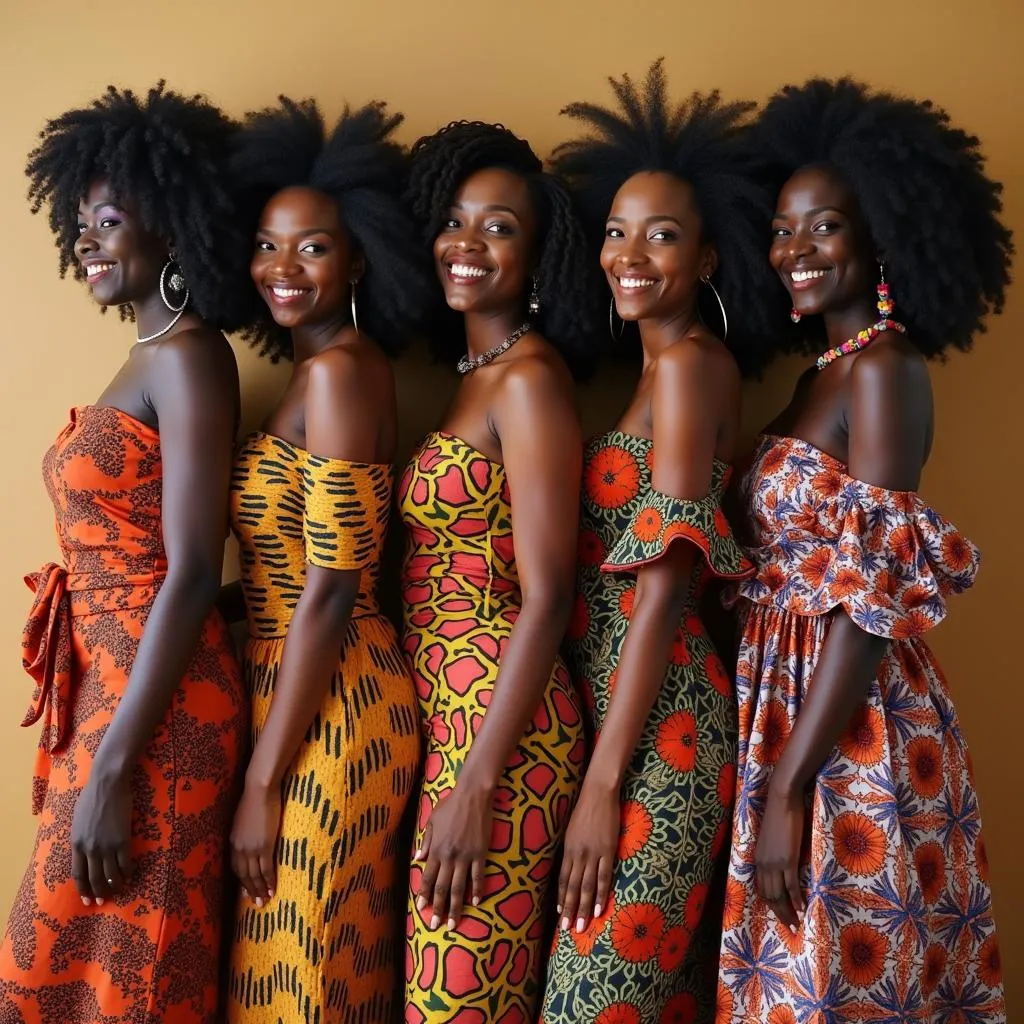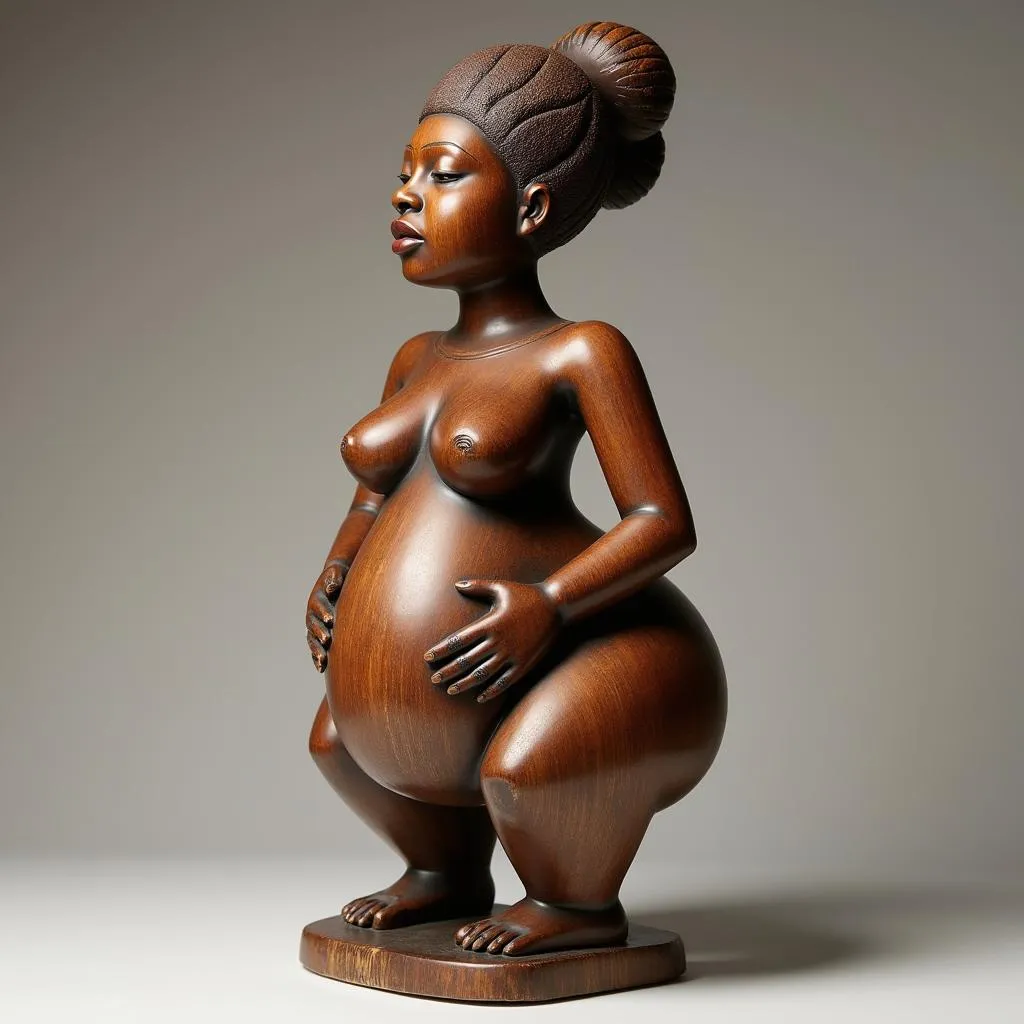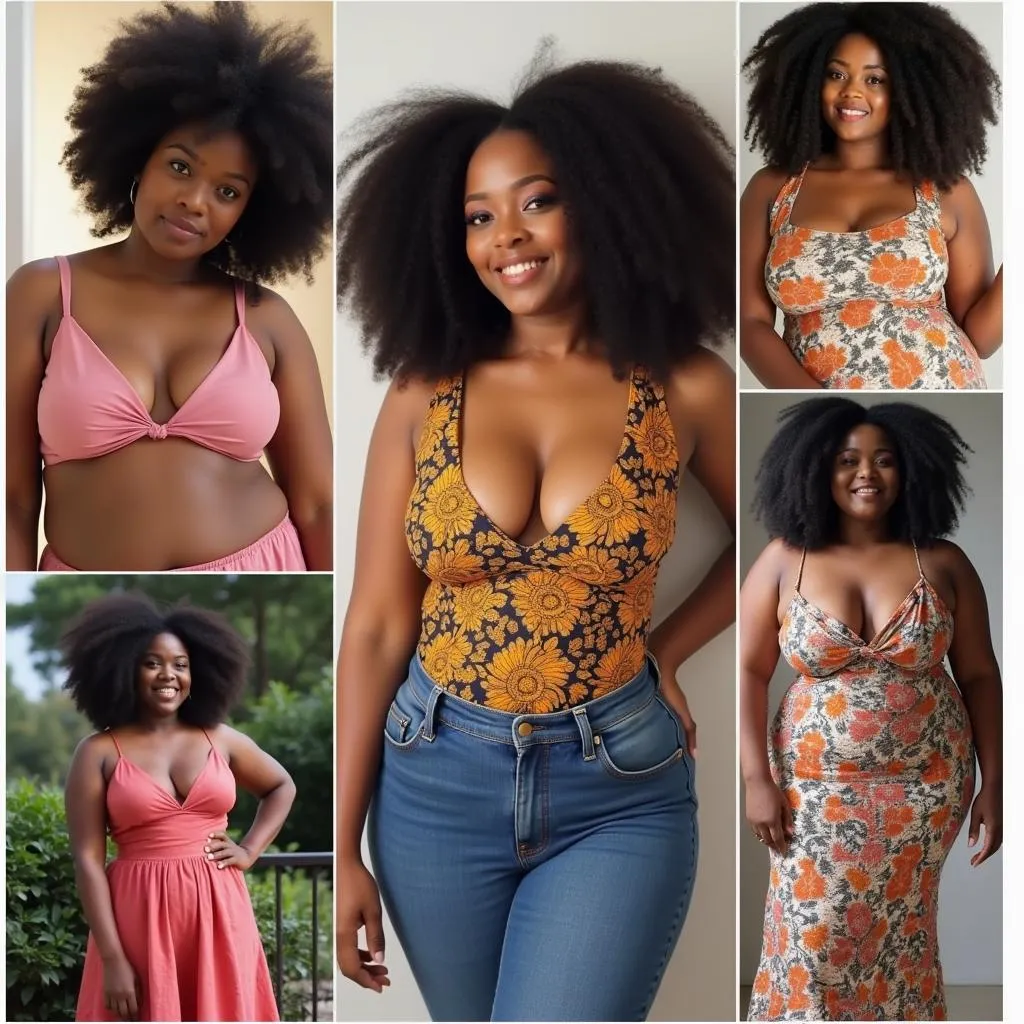African fatty women, a phrase not often heard in mainstream media, represent a demographic often overlooked in discussions about beauty and body image. Yet, throughout the African continent, women with fuller figures have historically been celebrated for their beauty, grace, and strength. This article delves into the cultural significance of African fatty women, explores the challenges they face in a world obsessed with Western beauty ideals, and celebrates their resilience and the movement to redefine beauty standards.
 African women in colorful traditional attire
African women in colorful traditional attire
The Historical and Cultural Significance of Fuller Figures in Africa
For centuries, in many African cultures, a woman’s curves were seen as a sign of prosperity, fertility, and good health. In pre-colonial Africa, food was often scarce, and a woman’s weight reflected her family’s wealth and her ability to bear and nourish children.
This appreciation for fuller figures is deeply rooted in traditional beliefs and customs. In some cultures, larger women were considered ideal partners for marriage, ensuring strong offspring and prosperity for the family. This reverence for curves is evident in African art, where sculptures and carvings often depict women with voluptuous figures as symbols of beauty and abundance.
 A traditional African sculpture depicting a woman
A traditional African sculpture depicting a woman
Challenging Western Beauty Standards
The influx of Western media and its portrayal of beauty have had a significant impact on how women, particularly young girls, perceive themselves in many parts of the world, including Africa. The ideal of thinness, often unattainable and unhealthy, has led to body image issues and a decline in self-esteem among many African women.
However, there is a growing movement challenging these imposed standards. African women are reclaiming their narrative, celebrating their bodies, and redefining what it means to be beautiful. This movement emphasizes self-love, body positivity, and the acceptance of diverse body types.
Celebrating Diversity and Redefining Beauty
Social media platforms have become instrumental in amplifying the voices of African women who are challenging conventional beauty norms. Bloggers, influencers, and everyday women are using their platforms to promote body positivity, share their stories, and inspire others to embrace their bodies.
This digital movement is creating a space for open dialogue about body image, encouraging women to love and accept themselves unconditionally. The message is clear: beauty comes in all shapes and sizes, and African women are reclaiming their narrative.
 African women celebrating their bodies on social media
African women celebrating their bodies on social media
Conclusion: Embracing Authenticity and Inner Beauty
The journey towards self-love and body acceptance is a personal one. It is about challenging societal norms and embracing our bodies, regardless of shape or size. African fatty women are at the forefront of this movement, reminding the world that beauty is not defined by Western ideals, but by the strength, resilience, and diversity of the human form.
Let us celebrate the beauty of African fatty women and continue to challenge narrow definitions of beauty, embracing a more inclusive and empowering narrative for all women. Remember, true beauty comes from within, from our individuality and the way we choose to embrace and celebrate ourselves.
FAQs
1. What are some common misconceptions about African fatty women?
One common misconception is that all African women with fuller figures are unhealthy. This is simply not true. Another misconception is that these women are all trying to lose weight to conform to Western beauty standards, which is also untrue. Many are comfortable and confident in their own skin.
2. How has colonialism impacted beauty standards in Africa?
Colonialism introduced Western beauty ideals, which often prioritized thinness and Eurocentric features. This led to the devaluation of traditional African beauty standards and contributed to body image issues among some African women.
3. What is the role of social media in challenging beauty standards?
Social media has provided a platform for African women to challenge conventional beauty norms and promote body positivity. It has helped to amplify their voices and share their stories with a wider audience.
4. How can we support the body positivity movement in Africa?
We can support the movement by challenging fatphobia and promoting body diversity in all forms of media. We can also celebrate and uplift the voices of African women who are challenging beauty standards and promoting self-love.
5. What is the future of beauty standards in Africa?
The hope is that African women will continue to reclaim their narrative and redefine beauty on their own terms. The movement towards body positivity is gaining momentum, and it is likely to have a lasting impact on how beauty is perceived in Africa.
Need help?
For more information and support, please contact us:
Phone: +255768904061
Email: [email protected]
Address: Mbarali DC Mawindi, Kangaga, Tanzania.
Our customer care team is available 24/7 to assist you.
Leave a Reply